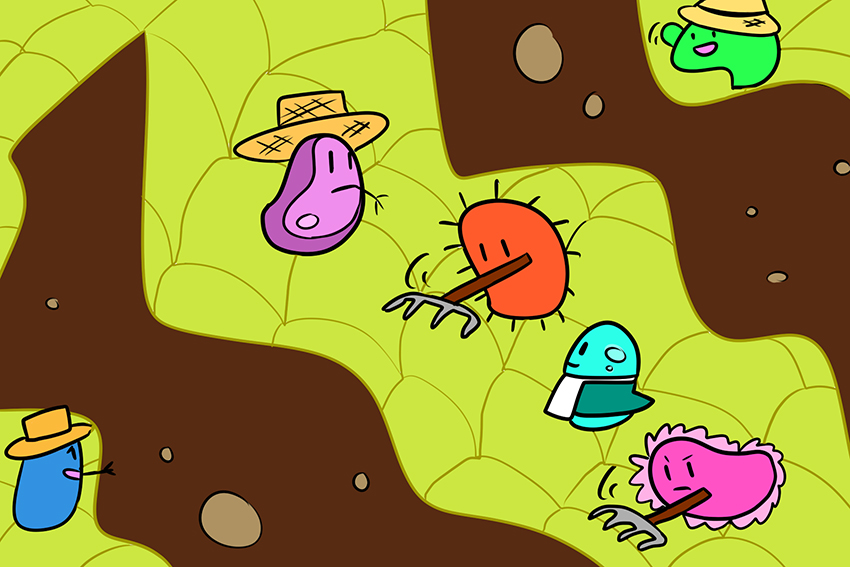Ulrich Mueller, UT professor of integrative biology, has developed a way to enhance an organism’s desirable traits through microbiology.
In a growing trend, scientists are trying to manipulate bacterial communities to improve plant and animal health and growth. Mueller’s approach involves the selection of naturally evolving communities.
He targets desirable host traits, such as low obesity levels in mice, and harvests the bacteria present in hosts that display those features.
“You can select on anything, as long as it’s partially influenced by microbes,” Mueller said. “In plants, for example, you can select on better growth, greener leaves, earlier or later flowering or disease resistance.”
UT researchers select for microbes that possess two important characteristics, according to Mueller. First, their effect on the host must be visible. For example, if certain microbes protect the host against a normally debilitating disease, that protection will probably be observable, since the organism without the protection will wilt or die.
Second, microbes must be easy to transfer from one generation to the next.
When people select on the inheritable traits of a plant or animal, all the genetic material moves from one place to the next — no parts of the genome are left behind.
Microbe communities, in contrast, are composed out of thousands of different genomes. When they’re transferred, certain components can be lost or new ones can be acquired, according to Mueller.
“The inheritance of these communities is different,” Mueller said. “But that is not a problem — you just want to have sufficient inheritance of those components to be beneficial to the host.”
Many microbial communities — known as microbiomes — have developed mutually beneficial relationships with the organisms they live with. They often supplement their hosts’ biology, interacting with host cells and living processes in essential ways.
For example, certain soil microbial communities influence the flowering times of a wild plant in the mustard family, according to a study in Ecology Letters. Similarly, a PNAS study on bumblebees found microbes in the insects’ guts protect them against intestinal parasites.
Mueller was interested in taking advantage of microbe-host interactions to optimize particular traits in animal hosts.
The selection of animal microbiomes is possible — selected animal parents can pass healthier microbes to their offspring. But experiments that engineer the microbiomes of animals are complicated.
Instead, Mueller began to grow genetically identical plants six years ago to observe and manipulate the effect of bacterial communities on individuals’ growth rate or disease resistance.
“Initially, like all good science projects, I started growing them in my kitchen,” Mueller said.
Through all the plants were genetically identical, certain individuals looked taller, greener and more robust.
Albert Lee, an undergraduate researcher working on Mueller’s project, said they selected for these desirable traits. They harvested microbiomes that presumably provided a better growth environment from the roots of healthier plants and transferred these to the next generation of plants.
“The plant itself stays the same because they’re genetically identical,” said Lee, a senior comics artist for the Daily Texan. “It’s the microbiome that we’re moving from one generation to another, to another.”
Mueller’s selection method takes advantage of a host’s reaction to its microbiome. It also takes advantage of host traits that evolved to foster favorable microbial communities. Over millions of years, organisms have become very good at amplifying beneficial microbes and reducing detrimental ones.
“I have an agent in the system that steers the selection process in my favor, which is the plant,” Mueller said. “Hosts have become very good at manipulating bacterial communities in their favor and you can tap into that evolutionary design.”





















